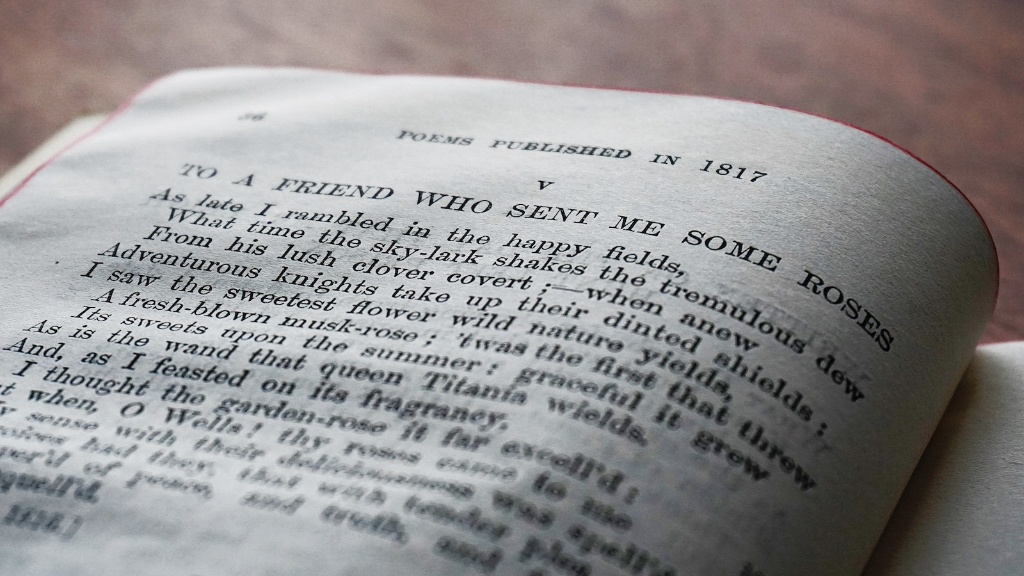Langston Hughes is one of America’s foremost cultural icons, and his use of rural dialects in his poetry is one of the most recognizable aspects of his work. His use of rural dialects has been lauded as one of the key elements of his work that helped him to become one of the most recognizable African American voices during the Harlem Renaissance. Langston Hughes’ use of dialects enabled him to bridge the gap between urban and rural communities in the mid-1900s, and it has since become one of his defining characteristics.
According to scholars of African American literature, Langston Hughes’ use of rural dialect in his work was a conscious decision to represent the experiences of African Americans living in the countryside. In his writing, he sought to capture the language and culture of rural African Americans, which he believed was not accurately represented in mainstream literature. Hughes was particularly interested in the language and culture of black people living in the vast stretches of the Southern United States. His use of rural dialects was an attempt to give a voice to African Americans in these areas and to represent the unique experiences that they faced.
Langston Hughes’ rural dialects were also a way of showing that African Americans had their own unique form of expression. Through his poetry, Hughes was able to display the beauty of the African American language and show that rural Southern African Americans were capable of expressing themselves in a way that was separate from the mainstream. This helped to give a sense of empowerment to black Southerners for whom Hughes’ work was particularly relevant.
In addition to representing rural African Americans, Langston Hughes also used his poems as a way to critique the Jim Crow laws and the racism of the times. By using rural dialects, he created a world for black Southerners to speak their frustrations without facing the same type of censorship that they faced in the public sphere. This allowed African Americans to express their struggles in a way that was not only more honest and open, but also less likely to be censored by white society.
Langston Hughes’ use of rural dialects in his poetry was a powerful way of both celebrating rural African American culture and critiquing the inequalities of Jim Crow. His use of dialects opened up a new way of expressing the struggles of black people living in the segregated South and helped him become one of the most celebrated African American authors of the Harlem Renaissance.
The Legacy of Langston Hughes
The legacy of Langston Hughes’ use of rural dialects in his poetry is lasting. His work opened up a new path for African American authors to explore the culture and language of rural African Americans, and it has been credited with inspiring many other African American authors who followed him. His influence is still felt in contemporary African American literature and art, and his use of dialects has been seen as a major contributing factor to his success as a writer.
Langston Hughes’ use of dialects in his poetry has also informed the way that African Americans are represented in popular culture. Many of his works have been adapted into films, TV shows, and other media, and his use of dialects has become an integral part of the way that African Americans are depicted in these adaptations. This means that Langston Hughes’ work has had a lasting impact on the way that African Americans are represented in popular culture.
The Use of Rural Dialects Today
Today, Langston Hughes’ use of rural dialects continues to be an important part of African American literature and art. Many contemporary African American authors, artists, and poets use dialects in their work as a way to capture the language and culture of African Americans living in rural areas. Hughes’ use of dialects has helped to inspire and empower generations of African Americans, and it continues to be a powerful tool for representing the experiences of African Americans living in rural areas.
Langston Hughes’ use of rural dialects in his poetry is an important part of American literary history, and it continues to have a lasting impact today. His use of dialects enabled him to bridge the gap between urban and rural African Americans and provided a platform for African Americans to express their frustrations and celebrate their culture. His use of dialects continues to be an integral part of African American literature, and it is a powerful tool for representing the experiences of African Americans living in the countryside.
The Political Significance of Rural Dialects
The use of rural dialects in Langston Hughes’ work was not just a way of capturing African American culture; it was also a political statement. By using dialects to capture the experiences of African Americans living in rural areas, Hughes was making a statement about the inequality that African Americans were facing during the Jim Crow era. He was also highlighting the importance of language in African American identity and the need to capture and preserve African American culture.
Today, Hughes’ use of rural dialects in his work continues to be seen as a powerful tool for political expression. His work shows the importance of language in representing the struggles that African Americans have had to endure and how rural dialects can be used to create a unique voice for African Americans. His use of dialects has helped to inspire generations of African American authors and to highlight the importance of preserving and celebrating African American culture.
The Meaning of Hughes’ Rural Dialects
Through his use of rural dialects, Langston Hughes was able to capture the experiences and struggles of African Americans living in rural areas, without straying into stereotypes. His work showed that African Americans living in the countryside could be represented in a positive way, without relying on clichéd stereotypes. By using dialects, Hughes was able to represent the real, lived experiences of African Americans, and to give a voice to those who may have otherwise gone unheard.
Hughes’ work was also a powerful celebration of African American culture and the importance of preserving African American language and culture. His use of dialects enabled him to capture the beauty of the African American language and to create a unique way of expressing African American experiences. This helped to inspire generations of African American authors, poets, and artists and allowed African Americans to express themselves in a way that was separate from the mainstream.
The Impact and Influence of Langston Hughes’ Work
Langston Hughes’ use of rural dialects in his poetry has had a profound impact on the way that African Americans are represented in literature and popular culture. His work has enabled black Southerners to express themselves authentically, without relying on stereotypes, and it has opened up a new way for African Americans to defend their rights and to celebrate their culture. His influence continues to be felt in contemporary African American literature and art, and his use of dialects has been credited with inspiring generations of African American writers.
Langston Hughes’ work has also helped to bridge the urban-rural divide and to bring together African Americans from disparate backgrounds. His work has helped to unite African Americans from different parts of the country, while at the same time serving as a reminder of the unique experiences of African Americans living in the countryside. This has allowed Hughes’ work to create a powerful platform for African Americans to celebrate their unique experiences and to express themselves in a way that is both honest and open.
Final Thoughts
Langston Hughes’ use of rural dialects in his poetry has enabled him to become one of the most celebrated and influential African American authors of all time. His work has opened up a new way for African Americans to express themselves, without relying on stereotypes, and it has helped to bridge the gap between urban and rural African Americans. It has also enabled generations of African Americans to express their frustrations and celebrate their culture, and it is a reminder of the importance of preserving African American language and culture.




